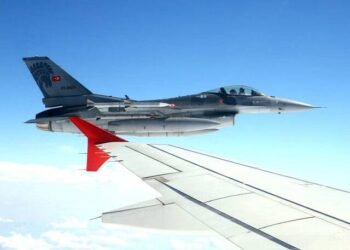The Saudia Group has placed a confirmed order for 105 Airbus A320-family narrow-body jets, the biggest deal in its history, as Saudi Arabia seeks to develop its aviation and tourism sector.
The aviation group signed a deal for 12 Airbus A320neo and 93 A321neo planes in Riyadh at the Future Aviation Forum on Monday.
The first aircraft is scheduled to be delivered in the first quarter of 2026, Saudi Group director general Ibrahim AlOmar told the conference.
“This is our biggest investment in passenger experience,” he said.
While the airline and Airbus did not disclose the value of the deal, the aviation forum said the order was worth $19 billion.
Airline customers typically secure discounts from plane makers beyond list prices.
The jet order will be split between national carrier Saudia and its budget sister airline flyadeal, the group said.
Saudia will take delivery of 54 A321neos while flyadeal will get 12 of the smaller A320neo variant and 39 A321neo aircraft.
The deal increases Saudia Group’s Airbus order backlog to 144 A320neo aircraft, the European plane maker said.
media reported earlier this month that flyadeal was considering placing an order for more single-aisle Airbus planes.
The latest order comes at a time when Saudi Arabia is focused on boosting non-oil sectors such as tourism, aviation and hospitality as part of its Vision 2030 economic diversification strategy.
The kingdom has set ambitious targets for the next seven years. It aims to transport 330 million passengers annually, have 250 destinations and attract 150 million tourists (70 million of those from overseas) by 2030.
“Saudia has ambitious operational objectives to meet growing demand. We are increasing flights and seat capacity across our existing 100-plus destinations on four continents, with plans for further expansion,” Mr AlOmar said.
“The progress of Saudi Vision 2030 is attracting more visits, tourists, entrepreneurs and pilgrims each year. This motivated our decision to secure this significant deal, which will create jobs, increase local content and contribute to the national economy.”
The kingdom registered a record year for air traffic in 2023 as 111.7 million annual passengers travelled through its airports, a 26 per cent increase on the year before, according to the General Authority for Civil Aviation.

The aviation sector contributed $20.8 billion to Saudi Arabia’s gross domestic product while aviation-related activities were responsible for a further $32.2 billion in tourism receipts, the authority said in its State of Aviation report.
Flyadeal plans to triple its fleet to 100 aircraft, from 32, in the next five years. The airline intends to carry 10 million passengers by the end of 2024, up from slightly more than seven million in 2023.
Saudia currently operates 145 Boeing and Airbus aircraft, with plans to expand its fleet by 50 per cent by 2030. The airline aims to carry 50 million passengers by 2030, up from 30 million in 2023.
In 2024, it expects to carry 10 per cent to 15 per cent more passengers into its Jeddah hub than it did last year on strong demand and new types of travellers, Arved von zur Muehlen, Saudia’s chief commercial officer, told media this month.
Saleh Al-Jasser, Minister of Transport and Logistics Services, said Saudi Arabia is transforming its aviation industry with developments such as the approved plan for a new airport in Riyadh, the creation of Riyadh Air, the establishment of plane-leasing company AviLease and hundreds of aircraft orders.
“The transformation is one that we invite the world to share in. We seek private sector partners with expertise to help us achieve our ambition,” he told the forum.








 United Arab Emirates Dirham Exchange Rate
United Arab Emirates Dirham Exchange Rate

